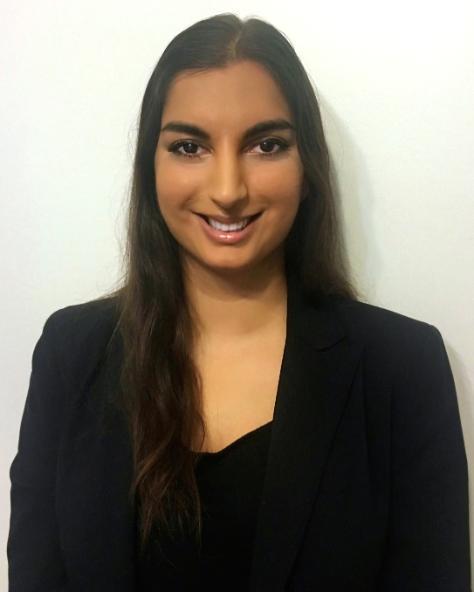Touro Medical Student Wins Award for Research at Homeless Shelter
Residents Learn About Diet, Exercise, and How to “Make a Healthy Food Plate” -- and then Move On

New York, N.Y. – A fourth-year medical student at Touro College of Osteopathic Medicine (TouroCOM) has won first place in a poster competition for her research on the effects of teaching about healthy diet and nutrition at a Queens homeless shelter. The award was presented at the recent 61st Midwinter Conference of the Texas Osteopathic Medical Association in Dallas.
Gayatri Malhotra-Gupta said her research grew out of her community service work and interest in studying the need for nutrition education programs in homeless shelters and whether they would have an impact long-term.
“I wanted to see whether it would make a difference,” said Malhotra-Gupta. “A lot of the participants were never screened for diabetes though they were overweight and had risk factors. We educated them and showed them how to build a healthy food plate.”
Working with a nonprofit organization that provides free healthcare education programs to underserved communities, Global Physicians Network Foundation, Malhotra-Gupta joined GPNF’s first endeavor to promote health education in a shelter.
Fifty women and children living at the shelter in Astoria, Queens, participated. Volunteers gave the residents a presentation on healthy eating and the different food groups. Adults were screened for prediabetes, taught how to calculate their body mass index (BMI), and counseled on how to make healthy meals and monitoring weight. Children were given worksheets on healthy food choices that they filled out in small groups, and were shown tai chi exercises and taught the importance of daily exercise.
Having a Positive Impact
“We know we had a positive impact on their knowledge from the surveys we got back,” said Malhotra-Gupta, who explained that after the program, a majority of responders said they had a better understanding of the topic and were better able to identify foods from the food groups and use them to make a healthy plate than they were before the program. Specifically they learned to “eat more fruits and veggies” and to exercise, she said.
However, there were challenges. Only 20 percent of the participants responded to the surveys. And as far as gauging any long-term impact, that seemed unlikely, she said. When the organization returned to the shelter to do a program on hygiene, half of the residents had moved on.
“It’s hard to see how they will use their knowledge in practice because they still don’t have access to stoves and it’s hard to monitor how they will use this knowledge in the future. Every time we go into a shelter fifty percent of the residents are new. It’s a very transient population,” she said.
Malhotra-Gupta’s research mentor at TouroCOM was Dr. Kurt Degenhardt, associate professor in the Department of Biomedical Sciences.
About the Touro College and University System
Touro is a system of non-profit institutions of higher and professional education. Touro College was chartered in 1970 primarily to enrich the Jewish heritage, and to serve the larger American and global community. Approximately 18,000 students are currently enrolled in its various schools and divisions. Touro College has 30 campuses and locations in New York, California, Nevada, Berlin, Jerusalem and Moscow. New York Medical College; Touro University California and its Nevada branch campus; Touro University Worldwide and its Touro College Los Angeles division; as well as Hebrew Theological College in Skokie, Ill. are separately accredited institutions within the Touro College and University System. For further information on Touro College, please go to: http://www.touro.edu/news/

